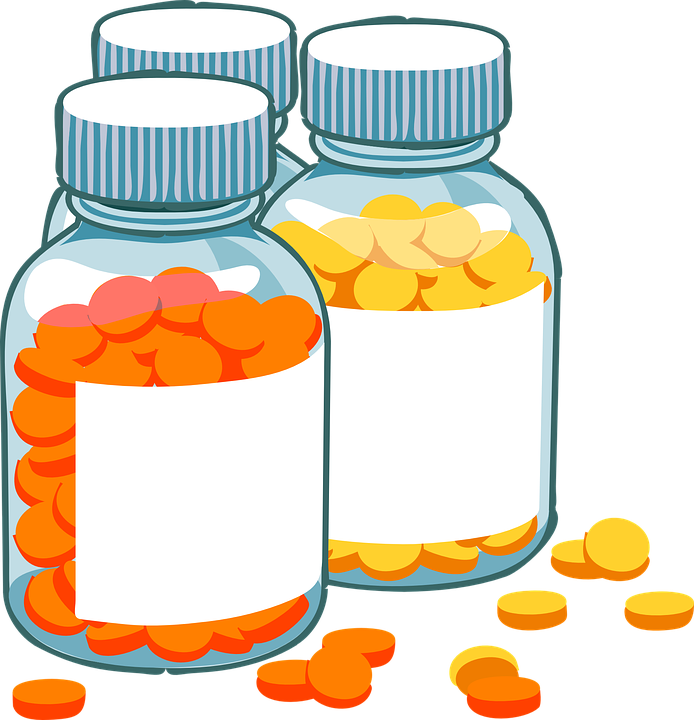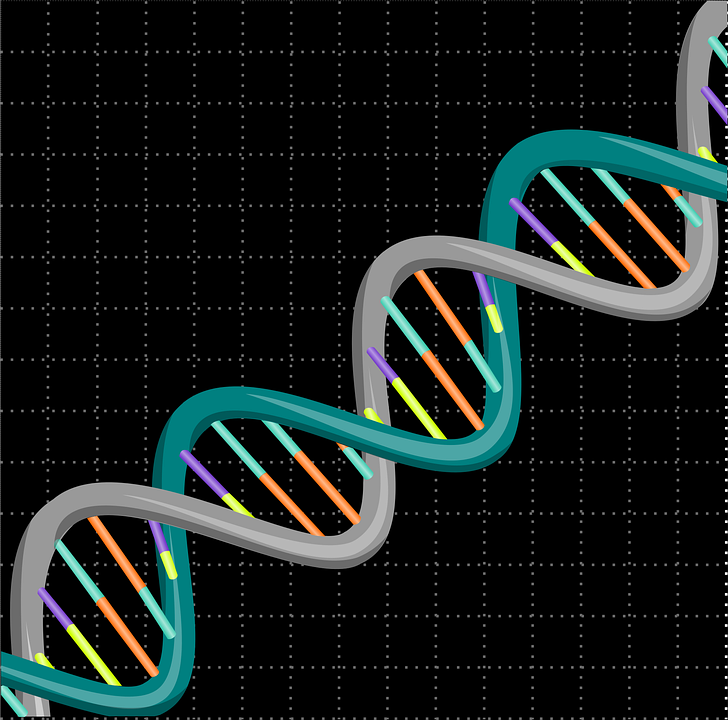Genes and Drugs: Pharmacogenetics
It was in the middle of the night when my dad woke everyone up. Quite an unusual thing for him to do, what could be wrong? He complained of having a funny feeling in his body and needs to be attended to by all means. To cut the long story short, he was taken to the emergency section of a nearby Hospital and it was right there we got to know that the funny feeling he was having was a result of one of the drugs he has been taking.
Introduction
People sometimes react strangely to certain drugs. Some other people take the same drugs and get well without having adverse side effects. Do you sometimes wonder why some people react to chloroquine, itching till they are almost sore and some others do not flinch even after an overdose? As humans, our genetic makeup plays a significant role in how we react to certain foods, drugs, and even our environment. People respond differently to food, which we sometimes call food allergy or food intolerance. How about drug therapy and how medications are processed?

Simply put, pharmacokinetics refers to the study of how the genome affects drug processing and response. As the name of the field of the study implies, pharmacogenetics is a convergence of pharmacology and genomics. The relatively novel field of the study evaluates and interprets how the genes or genetic makeups of human beings affect the different ways they respond to drugs.
Chances are you have had to run a series of tests to detect the reason you were ill at some point and the doctor has to specify a particular set of drugs that will work for you. Doctors make research to understand how an individual's gene works and how it can affect one's responses to medications. It is primarily aimed at selecting the appropriate medications and doses that suit each individual.
Pharmacogenetics also has to do with the differences in the metabolism of certain medications in individuals of all ages, from adults, children, and those with various health conditions that demand the use of specific medications. Pharmacogenetics helps doctors to tailor a patient’s medication to their personal genetic peculiarities and has every tendency to flip over the one-size-fits-all method of drug selection and dosing that is generally used recently.
Genes and response to medications
It is important to understand the role genes play in how medicine works. We might know that our genes are responsible for certain features in our bodies including our eye color, hair color, and texture but we might not know that they play a part in how our bodies respond to medicines. In other words, the genetic makeup of individuals affects how drugs are metabolized in their bodies. The same drug that my dad took has been and still being, taken by many other people within the same age bracket as him without the reaction he had.
In comprehensive terms, genes are instructions, written in DNA, for nurturing protein molecules. It is possible for different individuals to have different interpretations of the same gene. Each interpretation has a little different DNA sequence. Some of these differences are common, and some are not. Some can partially affect health and they generally pertain to certain diseases. Gene variability can affect the results of treatments and medications.
The roles of pharmacogenetics in drug development and prescription
Pharmacogenetics is the driving force behind accurate drug prescriptions. The role of pharmacogenetics in drug development and prescription is increasingly significant. Pharmacogenetics is the reason doctors can provide the necessary guidance on dose after prescription to suit every patient according to their gene variations. It helps to infer potential side effects, effectiveness, and differences drugs could have on people.
Pharmaceuticals and drug companies are capitalizing on the potentials of pharmacogenetics to develop the right drugs for individuals with specific genetic makeup. As scientists continue to pay attention to genetic materials and identify genes that are linked to certain diseases, causing severe side effects, it will be a lot easier to prescribe drugs to individuals with these type of genetic makeup, enabling some patients to get treated with effective medicines that otherwise might be disallowed because they could put other individuals at risk of costly side effects that sometimes result in quick deaths.
In recent years, doctors prescribe drugs according to certain factors such as a person's body mass, organ functions such as the liver and kidney, sex, and age. Research and study have also shown the genetic differences that affect how people react to some drugs. In light of this, doctors can handpick the most suitable medication and the best side for every patient, and that is in addition to how discovering how patients respond to medications can help understand the various forms and patterns of their illnesses to prevent unnecessary adverse occurrences.
The application of pharmacogenetics in drugs and therapeutics is increasingly important. It is an aspect of science that has been trusted for decades to improve the overall quality of health by drastically reducing the number of unnecessary adverse events and drug responses, failed drug trials, the duration for a drug's approval, and time of medications.
Pharmacogenetics will also decrease the number of medications an individual will take before recovery since the research will help the doctor prescribe the right drugs that suit their genes and detect disease on time to reduce their effects on the body, resulting in a decrease in health care costs.
With pharmacogenetics, scientists can discover and develop drugs based on RNA, enzymes, and proteins relating to genes. This will help produce specific therapies for specific diseases with an accuracy that will facilitate therapeutic effectiveness.
It is an important field that will enable doctors to examine the genetic profile of an individual before any prescription is given. This gives no room for any trial and error method in finding the right drug. It will quicken recovery and reduce to the barest minimum any chances of adverse reactions.

In addition to intensive and careful monitoring of medications just so the appropriate treatment is administered properly to maximize their therapy, pharmacogenetics has made it possible for scientists to create vaccines made of genetic material (DNA or RNA). These vaccines pose a considerably beneficial immune system activator. They will cost less than the usual and will be reliable. They will be easy to store for future purposes, and will also be capable of being formulated to possess multiple strains of a pathogen at once.
Still more to be done
The future of pharmacogenetics in the pharmaceutical industry poses a substantial tool that will redefine the medical sector. The radical advancement in medical history will herald the future of gene reports rather than blood reports to verify drug prescriptions. The genetic report will determine which drugs would be best for a patient's genes. Further development in this field in the near future will greatly impact drug design, approval, and administration.
References
- Malki, M.A., Pearson, E.R. Drug–drug–gene interactions and adverse drug reactions. Pharmacogenomics J 20, 355–366 (2020). https://doi.org/10.1038/s41397-019-0122-0
- Stan K. Bardal BSc (Pharm), MBA, PhD, ... Douglas S. Martin PhD, in Applied Pharmacology, 2011
- David W. Hein, Denis M. Grant, in Pharmacology and Therapeutics for Dentistry (Seventh Edition), 2017
- https://www.genelex.com/what-is-pharmacogenetics/
- https://www.nigms.nih.gov/education/fact-sheets/Pages/pharmacogenomics.aspx
- https://www.medicinenet.com/pharmacogenetics/definition.htm
- https://medlineplus.gov/genetics/understanding/genomicresearch/pharmacogenomics/
Thanks for your contribution to the STEMsocial community. Feel free to join us on discord to get to know the rest of us!
Please consider supporting our funding proposal, approving our witness (@stem.witness) or delegating to the @stemsocial account (for some ROI).
Please consider using the STEMsocial app app and including @stemsocial as a beneficiary to get a stronger support.
Congratulations @hadji! You have completed the following achievement on the Hive blockchain and have been rewarded with new badge(s) :
Your next target is to reach 36000 upvotes.
You can view your badges on your board and compare yourself to others in the Ranking
If you no longer want to receive notifications, reply to this comment with the word
STOPSupport the HiveBuzz project. Vote for our proposal!